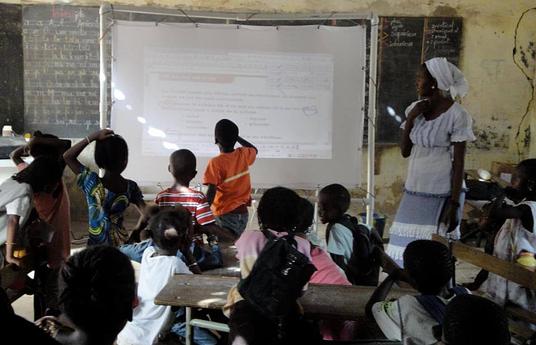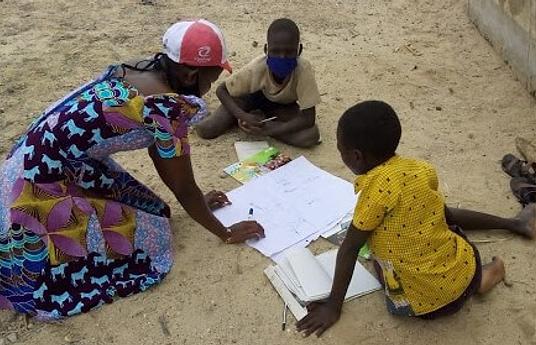Azima was launched in 2020 to address the educational disruptions caused by the COVID-19 pandemic, particularly affecting Syrian refugee children attending Jusoor’s educational centers in Lebanon. At the time, Azima ensured continuous learning by having the teachers deliver and follow up on accessible educational content directly with students using smartphones, requiring only an internet connection.
Due to the great needs on ground, Azima has been repurposed to support children who are out of formal education and unable to attend in-person learning due to circumstances like work, early marriage, caregiving, disabilities or lack of school access. The platform now equips these underserved children with essential literacy, numeracy, and life skills.
This approach is critical, as a 2023 UNHCR report indicates that 59% of Syrian youth aged 15–24 are neither employed, in education, nor attending any training. Barriers such as restrictive school registration policies and economic pressures that force children into work further limit access to education. Additionally, emergencies and security threats cause further disruptions to learning.
Azima addresses these challenges by providing an online learning module that overcomes financial, geographical, physical, and security obstacles. By utilizing the widely accessible WhatsApp platform, Azima ensures that education reaches the most vulnerable children, offering them a pathway to learning despite their circumstances.
Azima ensures that all children, regardless of background, have access to quality schooling and an equitable opportunity to succeed. The online format ensures that Jusoor can support the hardest-to-reach children by addressing common barriers like transportation, lack of legal documentation, physical disabilities, and the prevalence of child labor. Azima adapts a three-pronged approach: online learning, take-home materials, and virtual psychosocial support. Teachers engage with students and parents via Whatsapp to distribute short instructional videos and activities. Students respond with photos and videos of their homework for feedback and corrections. For areas with more limited internet access, offline learning packets enable students to continue learning from home. This approach has proven effective in maintaining educational continuity under challenging circumstances, with over 80% subject assessment pass rates, and over 70% participation rates in 2023-2024.
In 2020, Jusoor turned a global crisis into an opportunity for innovation amidst the COVID-19 pandemic. In 2021, Azima received The UNHCR EdTech Hub Award. Azima rapidly evolved into a long-term solution for students facing barriers to traditional schooling, including those with physical disabilities and economic hardships. To date, Azima has provided learning to over 1,500 refugee and displaced students across Lebanon.
For the 2024-2025 school year, Azima expanded to reach a greater number of students from Jusoor’s centers in Mount Lebanon and West Bekaa, who were affected by war in Lebanon. During that year, Azima provided continuous education and psychosocial support to 804 newly enrolled students who were unable to attend school.
In the coming years, Jusoor is exploring the expansion of Azima as a transferable solution for war-affected children. As part of extending our reach into Syria, Jusoor aims for Azima to support out-of-school students there and serve as a beacon of hope, enabling them to continue their education despite the challenges they face.
Thanks to its flexible and adaptable nature, Azima proved to be an effective and immediate solution during the hostilities in Lebanon in late 2024. Due to security threats to the lives of students at our centers, Jusoor was forced to suspend in-person classes, putting students' education at risk. However, drawing on our experience with online learning and building on the success of Azima, Jusoor's team swiftly transitioned to remote education. Recognizing the sensitivity of the situation and the mental toll of war, Azima’s online package included advanced mental health videos for parents, offering coping strategies and exercises to support families in times of crisis. These resources were complemented by booklets and stationery to help parents actively engage with their children in these activities.
For advice and support on adapting Azima to your context, please get in touch with us at info@jusoor.ngo. Jusoor's team of educators can share information and guidance on building a WhatsApp based learning solution for your target population.



